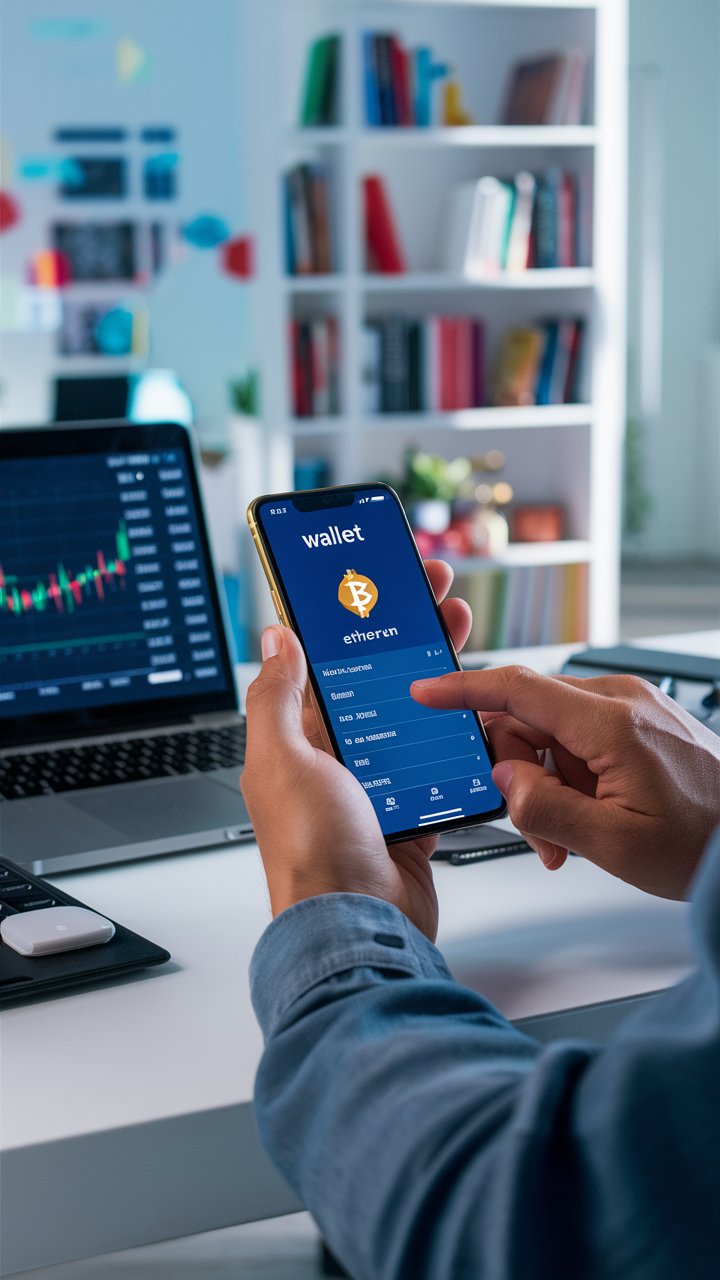Introduction
In the evolving landscape of commerce, the prominence of digital financial transactions is undeniable. From financial service providers to everyday consumers, the shift towards a digital wallet and other electronic payment methods is reshaping how money moves from one account to another. This transition not only enhances the convenience of purchases and money management but also plays a critical role in fostering financial inclusion, especially in developing countries where traditional banking infrastructures are less pervasive.
The adoption of digital payments has been significantly accelerated by the pandemic, prompting businesses and consumers alike to adopt contactless payment systems. These systems not only address health concerns but also streamline transactions, making them faster and more secure. As the economy increasingly leans on digital initiatives, sectors like e-commerce and crowdfunding have seen a surge in efficiency and reach. Furthermore, the integration of cryptocurrencies and payment solutions like Visa are indicative of a broader, more diverse financial sector ready to cater to the next generation of financial technology.
Key Takeaways
- Digital financial transactions enhance convenience, streamline money management, and promote financial inclusion, particularly beneficial in developing countries.
- The pandemic has significantly boosted the adoption of digital payments, with increased use of contactless payment systems enhancing transaction security and speed.
- Cryptocurrencies and innovative payment solutions like Visa are diversifying the financial sector and paving the way for the next wave of financial technology.
- Mobile payments have transformed financial transactions, making them more convenient and accessible, allowing consumers to manage their money effortlessly.
- The rise of digital financial transactions is challenging traditional banks to innovate and adapt, increasing competition and changing consumer expectations.
- The shift towards a cashless society brings challenges, such as the potential exclusion of vulnerable populations and increased concerns over data privacy and security.
The Benefits of a Cashless Society
The shift towards a cashless society is transforming our economic landscape, offering significant benefits ranging from enhanced security to greater financial control. By minimizing the physical handling of money, consumers and businesses alike can experience a streamlined, efficient approach to transactions. This societal shift not only facilitates easier management of finances but also aligns with the ongoing digital innovation in the financial sector.
Convenience and Security for Consumers
One of the standout benefits of a cashless society is the convenience it provides to consumers. By leveraging digital payment services, individuals can make purchases, pay bills, and transfer money with just a few clicks using their electronic devices. This eliminates the need to carry cash, reducing the risk of theft and loss. Additionally, the use of digital methods ensures that transactions are secure and that consumer data is protected through advanced technological safeguards.
Improved Financial Management
Digital financial services enable consumers to have a real-time view of their financial status, which greatly aids in budgeting and financial planning. With every transaction automatically recorded, users can track their spending patterns and adjust their habits accordingly. The ability to automate payments and subscriptions helps in managing recurring expenses, making it easier to avoid late fees and manage cash flow efficiently.
Increased Efficiency and Cost Savings for Businesses
For businesses, adopting cashless payment systems means increased operational efficiency. Digital payments streamline the payment process, reducing the time spent on manual cash handling and the associated administrative costs. This transition not only speeds up the transaction process, enhancing customer satisfaction, but also significantly lowers the risk of cash-related fraud and theft, fostering a safer business environment.
The Rise of Mobile Payments
The ascent of mobile payments marks a pivotal shift in consumer finance, fueled by the rapid spread of smartphone technology and sophisticated mobile wallet applications. This transformation is reshaping purchasing behaviors worldwide, making transactions quicker and more secure without the traditional need for physical currency. The convenience and flexibility provided by mobile payments have not only enhanced the consumer experience but have also set new standards in financial mobility and accessibility.
Key Benefits of Mobile Payments
Enhanced Security: Mobile payments provide a higher level of security compared to traditional payment methods. Digital wallets use encryption and biometric authentication (such as fingerprint or facial recognition), which significantly reduces the risk of fraudulent transactions and identity theft.
Convenience: Mobile payments eliminate the need to carry cash or physical cards. Consumers can make quick and easy transactions using their smartphones, whether in-store, online, or through peer-to-peer payment apps like PayPal, Venmo, or CashApp.
Efficiency: Mobile payments streamline the checkout process, reducing the time required to complete transactions. This efficiency is beneficial for both consumers and businesses, leading to faster payment processing and improved customer satisfaction.
Financial Management: Digital payment methods automatically record transactions, allowing consumers to track their spending in real time. This helps in better budgeting and financial planning.
Global Accessibility: Mobile payments facilitate international transactions without the need for currency exchange. This global accessibility is particularly useful for travelers and businesses engaging in cross-border trade.
These benefits underscore the significant impact of mobile payments on enhancing the efficiency, security, and convenience of digital financial transactions, driving their widespread adoption in today’s financial landscape.
Streamlining Everyday Transactions
Mobile payments simplify daily financial activities by enabling quick and secure transactions directly from smartphones. This convenience is evident in everyday scenarios, such as shopping at retail stores, dining out, or commuting, where mobile payments replace the need for cash or cards. The technology supports various payment options, including credit cards and debit transactions, processed in real time through apps, enhancing the speed and efficiency with which consumers can manage their financial transactions.
Empowering Peer-to-Peer Exchanges
Beyond retail transactions, mobile payments significantly ease peer-to-peer transfers, allowing individuals to send and receive money effortlessly among friends and family. These systems facilitate splitting bills, repaying loans, or gifting money with minimal effort, all within secure and user-friendly platforms. Such features promote financial inclusion by providing everyone, including those in developing countries or financially excluded sectors, access to simple and effective financial tools.
Expanding Online and In-App Purchasing
The expansion of mobile payments into online and in-app purchasing is transforming e-commerce. Consumers can now execute secure transactions without repeatedly entering their payment details, safeguarded by advanced financial technology. This integration supports a seamless shopping experience, from online payment systems to in-app purchases, reflecting the growing trend of digital finance that promises greater security and convenience for users worldwide.
The Role of Cryptocurrency in the Cashless Movement
Cryptocurrency is redefining the parameters of the cashless movement, setting itself apart as a groundbreaking alternative to traditional fiat currencies. By operating on a decentralized blockchain network, it ensures transparency and security, features that are enticing both consumers and businesses to reconsider their usual financial conduits. As cryptocurrencies like Bitcoin and Ethereum become more integrated into mainstream commerce, they promise to enhance how we understand and interact with global financial systems, making transactions faster, cheaper, and more accessible to a global audience.
Enhancing Transaction Security and Privacy
Cryptocurrency offers unparalleled security and privacy benefits, leveraging blockchain technology to protect user data and transaction details in a way traditional banking systems cannot. Each transaction is encrypted and distributed across a network of computers, making fraudulent activities extremely difficult. This level of security is appealing in an era where digital privacy concerns are escalating, drawing consumers who seek control over their financial data.
Facilitating Financial Inclusion
Cryptocurrencies play a crucial role in financial inclusion, providing access to financial services for the unbanked and underbanked populations globally. By bypassing traditional financial institutions, cryptocurrencies allow individuals in remote or underserved regions to participate in the global economy through simple internet access. This democratization of financial services not only empowers individuals but also stimulates economic growth in developing areas, aligning with goals of sustainable development.
Supporting Global Transactions and Investments
Cryptocurrencies are also transforming the realm of international transactions and investments. They facilitate quicker and more cost-effective cross-border payments without the need for intermediaries, such as banks or clearinghouses, which traditionally slow down and complicate international money transfers. Moreover, the global nature of cryptocurrencies allows investors to diversify their portfolios by accessing international markets and assets easily, promoting a more interconnected and efficient global financial landscape.
“Bitcoin is a remarkable cryptographic achievement, and the ability to create something that is not duplicable in the digital world has enormous value.” — Eric Schmidt, Former CEO of Google
The Impact of Digital Financial Transactions on Traditional Banking
The landscape of traditional banking is undergoing significant transformations due to the surge in digital financial transactions. This digital shift is compelling banks to innovate and adapt, as they now compete not only with each other but also with agile fintech startups and alternative payment providers. The rapid adoption of digital payment methods by consumers has necessitated that traditional banks reinvent their approach to banking services, focusing more on digital accessibility and the integration of modern technologies.
Adapting to Consumer Expectations
As digital transactions become the norm, consumer expectations are shaping the future of banking. Traditional banks are now required to offer services that match the convenience and speed of fintech platforms. This includes the implementation of mobile banking apps, real-time transactions, and more personalized banking experiences that leverage data to better understand and serve customers. Such innovations are crucial for banks to retain customer loyalty and remain competitive in a rapidly evolving market.
Enhancing Digital Security and Privacy
With the increased volume of digital transactions, concerns over data security and privacy have escalated. Traditional banks are under immense pressure to fortify their cybersecurity frameworks and comply with stringent data protection laws to protect sensitive customer information. This push towards enhanced security measures not only safeguards the interests of customers but also bolsters trust in the banking institutions themselves, which is essential for maintaining a strong customer base in the digital age.
Driving Financial Inclusion Through Technology
Digital financial transactions are also playing a pivotal role in enhancing financial inclusion. By providing digital solutions that are accessible to a broader segment of the population, including those in remote or underserved regions, banks can extend their reach and impact. This includes offering basic banking services through mobile platforms that require minimal traditional infrastructure, thereby lowering barriers to banking services and fostering economic empowerment at a global scale.
The Challenges and Concerns of a Cashless Society
The transition to a cashless society is not without its challenges and concerns, which need careful consideration to ensure that the benefits of digital financial systems are equitably distributed. While the convenience and efficiency of cashless transactions are celebrated, the shift poses significant risks and difficulties for certain segments of the population and the economy. Addressing these concerns is crucial to create a cashless system that is inclusive and secure for all stakeholders.
Vulnerable Populations Left Behind
The shift towards a cashless society can inadvertently marginalize vulnerable groups such as the elderly, low-income households, and residents in remote areas. These populations might not only lack the necessary digital literacy but also access to the required technology and internet connectivity to participate in a digital economy. This disparity highlights the need for inclusive financial products and education that ensure everyone can benefit from digital advancements, not just those in well-connected urban centers.
Surveillance and Data Privacy Concerns
As financial transactions become increasingly digitized, the potential for surveillance and breaches of data privacy grows. The accumulation of detailed transaction data poses a risk of misuse by both corporations and governments, making robust data protection measures more critical than ever. It’s imperative that regulations evolve alongside these technological advancements to protect individuals’ financial and personal information from unauthorized access and ensure consumer trust in digital financial systems.
Impact on Small Businesses
Small businesses that traditionally rely on cash transactions face significant challenges in transitioning to digital payments. Many may struggle with the costs associated with adopting new technologies, and the fees associated with digital payment services can be prohibitively high. To support these businesses, it’s essential to develop accessible digital payment solutions and provide financial incentives or subsidies that can ease the transition and help sustain their operations in a predominantly cashless market.
The Future of Digital Financial Transactions
The future of digital financial transactions is set to be driven by ongoing technological innovations and evolving consumer behaviors. As technology advances, we can anticipate further developments in digital payments, such as biometric authentication, tokenization, and artificial intelligence-driven fraud detection systems. These advancements are expected to enhance the security and convenience of digital transactions, making them more accessible and reliable for consumers worldwide.
Integration of Advanced Technologies
The integration of advanced technologies into digital financial transactions will revolutionize the way consumers interact with their finances. Biometric authentication, for example, offers a higher level of security by using unique physical characteristics, such as fingerprints or facial recognition, to verify identities. This method significantly reduces the risk of fraud and unauthorized access to bank accounts. Additionally, AI-driven fraud detection systems can monitor transactions in real time, identifying and preventing suspicious activities more effectively than traditional methods.
Seamless Omnichannel Payment Experiences
As the digital landscape evolves, we can expect a greater integration of different payment instruments and platforms, resulting in seamless omnichannel payment experiences for consumers. This will enable individuals to make payments effortlessly across various devices and channels, whether in-store, online, or through mobile apps. Such integration not only enhances user convenience but also supports a more cohesive financial ecosystem, allowing for smoother and faster transactions.
Rise of Cryptocurrency
Cryptocurrencies are likely to play a significant role in shaping the future of digital financial transactions. As more people adopt digital currencies as a viable alternative to traditional fiat money, we can expect greater acceptance and use of cryptocurrencies for everyday transactions and investments. This shift will not only diversify forms of payment but also promote financial inclusion by providing access to financial services for those who are unbanked or underbanked, particularly in regions like Ghana and other developing areas.
[lasso rel=”amazon-47″ id=”10335″]
Conclusion
In the evolving landscape of commerce, the prominence of digital financial transactions is undeniable. This shift towards using digital methods, such as digital wallets and other digital financial products, is transforming how money is managed and moved from one bank account to another. The convenience and efficiency offered by these innovations not only streamline financial activities but also drive financial inclusion, particularly in regions where traditional banking infrastructures are lacking.
The rise of fintech companies and the implementation of advanced technology in the financial sector have significantly accelerated the adoption of digital payments. These changes have been further catalyzed by global events like the pandemic, prompting both consumers and businesses to embrace digital methods. As we look to the future, continuous innovations will likely further integrate digital transactions into our daily lives, providing a foundation for future advancements and ensuring that the benefits of a cashless society are widely accessible.















